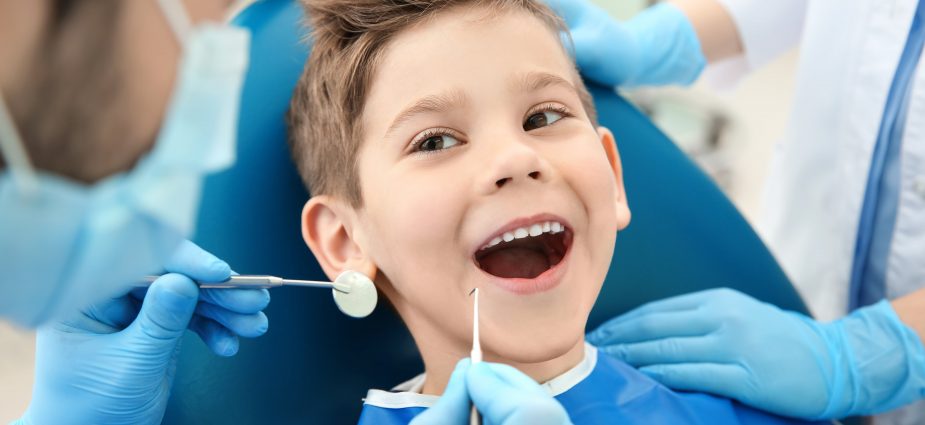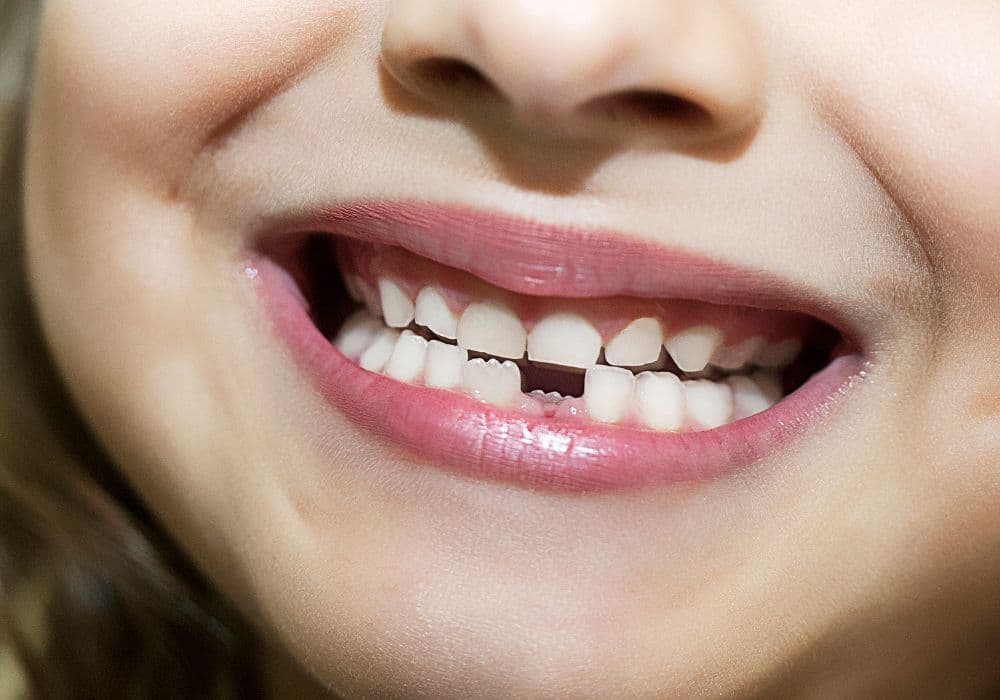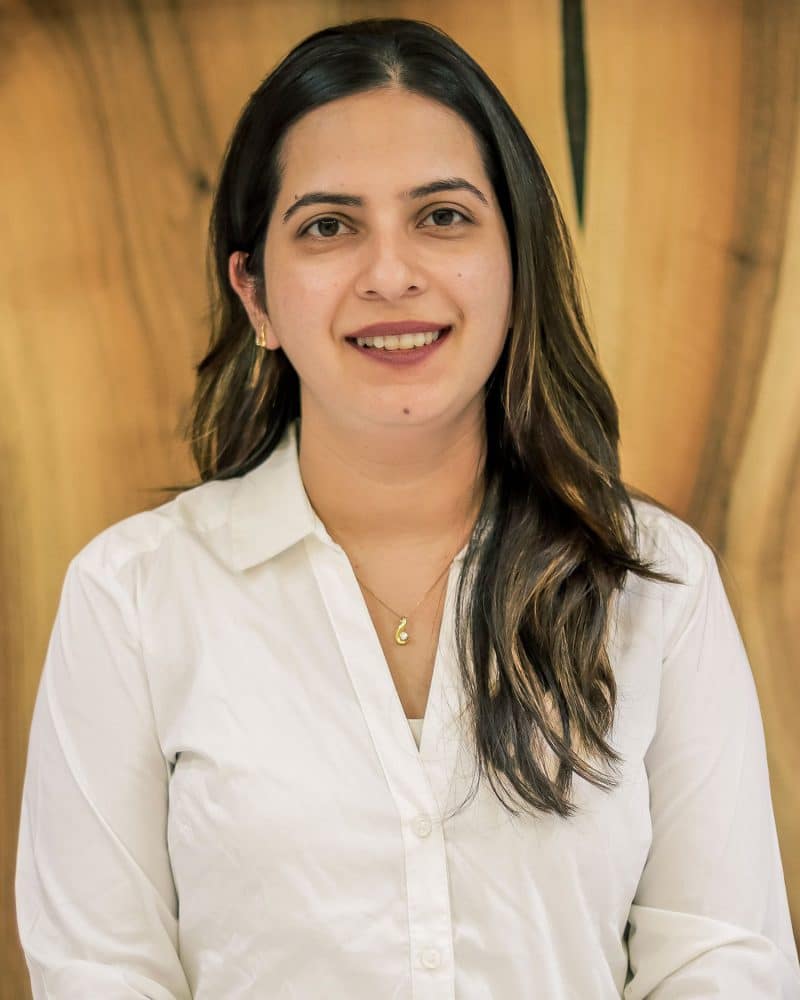Primary or milk teeth are responsible for many essential functions of our young ones, like chewing, smiling, talking, and maintaining space in the jaws for the developing permanent teeth.
Pediatric and preventive dentist Dr. Pratibha Kukreja Pandit explains that if a primary tooth is lost early due to trauma, accidents, or tooth decay, it can lead to malocclusion (the misalignment of teeth).
Therefore, parents or guardians must timely monitor the mixed dentition stage, which is the period between the shedding of milk teeth and the eruption of all permanent teeth. This can avoid long-term dental problems arising from premature loss of milk teeth.
What Are The Reasons For The Early Loss Of Milk Teeth?
- Tooth removal (extraction) due to cavities: Childhood cavities are common as baby teeth are much more susceptible to dental decay than adult ones. In extreme cases, if cavities have caused extensive damage to the tooth or the surrounding bone, the dentist may opt to extract (remove) the tooth. Therefore, any small visible cavity should immediately be restored with dental fillings to prevent early loss of teeth.
- Tooth loss due to accidents or trauma: As children play and develop motor skills, accidents are bound to happen. Premature loss of milk teeth due to trauma can cause eruption disturbances in permanent teeth and orthodontic issues with erupting permanent teeth.
What Are The Problems Caused By Early Loss Of Teeth?
- Poor development of the upper and lower jaws: Loss of teeth leads to loss of bone structure of the jaws. When teeth are lost at a young age, jaw bones do not develop as they should, leading to poorly formed occlusion.
- Malaligned teeth or ectopic eruption: As the permanent teeth are more in number and bigger in size than the milk teeth, they replace them differently. Any premature loss of baby teeth can cause them to erupt in the wrong position causing misaligned dentition.
- Poor teeth and gum health: Crowded or malaligned teeth eventually lead to poor oral hygiene, calculus (hardened dental plaque), and bacteria deposition leading to increased caries risk and bad oral health.
- Difficulty in forming complex sound words: Front teeth help kids to form certain sounds and words which can pose a problem if they lose their teeth prematurely.
- Self-consciousness and low self-esteem: Many children feel embarrassed and ashamed of their appearance when they have missing teeth. As a result, they may avoid smiling or laughing, which can lead to social isolation and low self-esteem.
What Is Teeth Crowding?
What Are Space Maintainers In Dentistry?
Space maintainers are customized intraoral appliances used in pediatric dentistry to prevent the eruption of permanent teeth in the wrong position when a milk tooth is lost prematurely. They help to maintain the space for the developing permanent tooth until its eruption at a later date.
Space maintainers help prevent malaligned teeth, overcrowding, and orthodontic problems like open bites, deep bites, or crossbites.
Be assured that Dr. Pratibha Kukreja Pandit, Pediatric Dentist of Pandit Clinic, Pune, can help you with any kind of space maintainer your child may need.
What Are The Different Types Of Orthodontic Space Maintainers?
- Fixed unilateral: They are fixed on the teeth of one side of the mouth
- Fixed bilaterally: They are fixed on the teeth of both sides of the mouth
- Removable appliances: They are easily removable by the patient and must be worn for a specific time period. However, due to limited cooperation in children, their use is very limited in pediatric dentistry.
Fixed unilateral orthodontic space maintainers:
Band and loop space maintainers:
The band is cemented on the primary second molar, and the loop is extended till the canine to help maintain space after the primary first molar is lost due to any of the reasons listed above.
Distal shoe:
The distal shoe is also a unilaterally fixed space maintainer. The distal shoe helps to maintain space in cases when the primary second molar is lost prematurely and the first permanent molar has not yet erupted. This appliance fits over only one tooth and has a wire which extends into the space where the permanent molar has to erupt to help guide it into its proper place.
Fixed bilateral appliances:
These are metal space maintainers fixed on both sides of the dental arches to maintain space where usually multiple teeth are lost.
Some popular types are the lingual arch, transpalatal arch, and Nance arch.
- Transpalatal arch: This is a bilateral appliance used to retain spaces when teeth have been lost in the maxillary (upper) jaw. It consists of a thin metal wire which goes over the palate to help connect the opposite primary molars, which are banded. This space maintainer helps to guide the permanent molars in the upper jaw.
- Lingual holding arch: It is similar to the transpalatal arch but customized and put in the lower jaw. The appliance helps to maintain space for erupting permanent premolars. The appliance is fixed to lower permanent first molars and has been used for multiple purposes like correction of crowding, space maintenance, and space regaining in mixed dentitions.
- Nances arch:The Nances arch is very similar to the transpalatal arch. The specialty of this appliance is the acrylic button fixed in the center of the palate. It is only used for the upper jaw. However, it is beneficial in maintaining space for erupting permanent premolars and retaining the overall jaw bone length.
The Process Of Space Maintainer Fabrication And Follow-Up:
As space maintainers are customized appliances, there is no one size that fits all. Once a decision about the type of space maintainer is discussed and made, an impression (measurement) of the site is made. The impression is then sent to the dental lab and a space maintainer is fabricated. At the second visit (roughly 3-7 days after, depending on the type of space maintainer), the space maintainer fit is checked in the patient’s mouth. Minor adjustments, if required, are done. The space maintainer is then cemented in the patient’s mouth and all the necessary and relevant instructions are given.
Generally, a follow-up is recommended after a week to adjust minor sore points and evaluate gum health. Three to six-month follow-ups are recommended to check for the integrity of the appliance, oral health, caries risk factors, and the position of the new tooth.
What Are Pre-Formed Space Maintainers/Single-Visit Space Maintainers And Why Are They Used?
When Do Space Maintainers Need To Be Removed?
- Congenitally absent teeth
- Loss of permanent teeth due to trauma
- Trauma or infection of the developing tooth bud
- Oral/ dental diseases cause the tooth to remain undeveloped or unable to erupt
If your child has lost a milk (primary) tooth early, it’s essential to seek treatment as soon as possible. Space maintainers can help keep the teeth in place and prevent future problems with malocclusion. If you have any questions or concerns, please don’t hesitate to contact us on +918805980048 / +91-7888229284 or book an appointment with Dr. Pratibha Kukreja Pandit.
Virtual Video Consultations
100% SAFE AND SECURE CALLS WITH ENCRYPTION. YOUR PRIVACY AND CONFIDENTIALITY IS GUARANTEED.
Start here, by making an appointment for a virtual consultation with our expert Dr. Pratibha Kukreja Pandit (NEW PATIENTS ONLY).
Dr. Pratibha Kukreja Pandit is available for Virtual Video Consultations from Monday – Saturday between the hours of 11 am – 2pm and 4pm – 7pm.
If you are already our valued patient with questions or have an emergency please contact the clinic on +91 9822053446
Consult Dr. Pratibha Kukreja Pandit
(Pediatric Dentist)
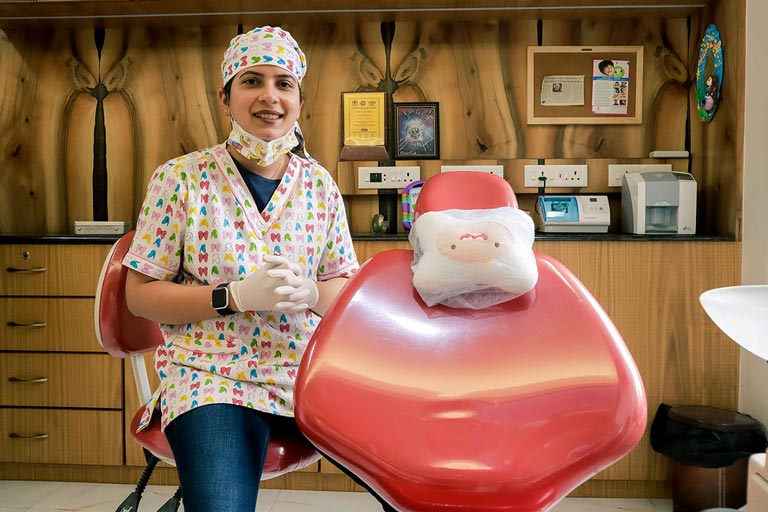
Virtual Video Consultation Fees Rs. 500
The Consultation Fees Must Be Paid Online by GOOGLE PAY BEFORE YOUR APPOINTMENT. See The Instructions On Appointment Confirmations
Your virtual video consultation includes:
- Discussion of problems that your child is facing like tooth pain, swelling or any other emergencies
- Dr. Pratibha will recommend a course of treatment or medications for your child.
Meet the Doctor
Pediatric and Preventive Dentistry Specialist
Dr. Pratibha is the Chief Dentist at Pandit Clinic. She is also a Consultant Pediatric Dentist at Kotbagi Hospital and KEM Hospital, Pune.
Dr. Pratibha has trained at the prestigious Chang Gung Memorial Hospital, Taiwan, in advanced areas including Pediatric dental treatment under General Anesthesia and Intravenous sedation, Dental Rehabilitation of children with special health care needs, and Nasoalveolar molding and dental rehabilitation of cleft lip and cleft palate.
She’s the lifetime member of Student Clinician Association, American Dental Association (SCADA), USA.
Professional Affiliations and Skills
- Trained in Pediatric dental treatment under General Anesthesia and Intravenous sedation at Chang Gung Memorial Hospital, Taiwan
- Trained in Dental Rehabilitation of children with special health care needs at CGMH, Taiwan
- Trained in Nasoalveolar molding and dental rehabilitation of Cleft lip and Cleft Palate at craniofacial centre, CGMH, Taiwan
- Awarded Lifetime membership, SCADA (Student Clinician Association, American Dental Association), USA.
You Might Be Interested In

Dental care and management for children with congenital cardiac conditions
As a parent of a child with a cardiac condition, you know the importance of meticulous care in every aspect of their health. One critical
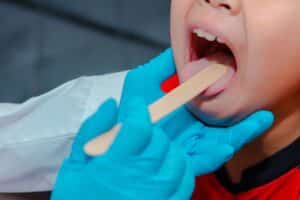
Improving Your Child’s Oral Health Through Myofunctional Exercises
Discover how myofunctional therapy can improve your child’s oral health by addressing issues like mouth breathing, speech difficulties, and more. Dr. Pratibha Kukreja Pandit at Pandit Clinic in Pune offers expert guidance and personalized exercises to help your child thrive.






